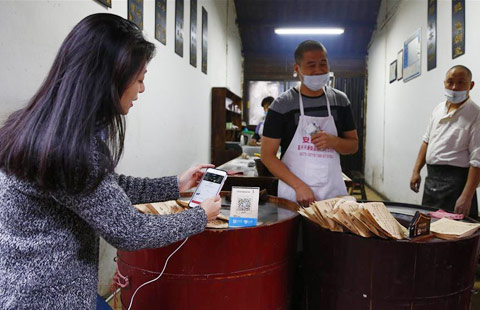China, Russia concentrate on SME cooperation
BEIJING - As small- and medium-sized enterprises (SMEs) enjoy many advantages and could tap great economic potential, both Chinese and Russian prime ministers called for more cooperation between the two countries' SMEs to create new sources of growth.
During Chinese Premier Li Keqiang's official visit to Russia this month, where he also attended the 21st China-Russia Prime Ministers' Regular Meeting, Li and his Russian counterpart, Dmitry Medvedev, simultaneously attached importance to enhancing SMEs cooperation.
The premier pointed to SMEs and innovation in particular as the areas where the two countries should step up efforts to exploit new potential besides major strategic projects.
To respond to Li's calling, Medvedev said the two countries would make more efforts to boost cooperation in SMEs' innovation, while actively conducting cooperation in major projects in the areas of oil and gas and nuclear energy.
In fact, the trade volume between the two countries fell a bit in 2015, mainly due to sinking prices of commodities, which were usually traded through large enterprises.
SMEs, which are relatively not sensitive to commodity prices, could not only create more jobs, but also provide complementarity for large enterprises to reduce their costs, so as to better boost their cooperation.
Besides, SMEs are more flexible, allowing them more accurately to sense market need and carry out cooperation more on the basis of business principles.
Furthermore, if SME cooperation, featuring more people-to-people exchanges, goes well, the foundation of economic cooperation between two countries can be expanded, which, in turn, enlarges nongovernmental exchanges.
Su Xiaohui, research fellow at China Institute of International Studies, said it is notable that the two countries' premiers have agreed to exploit potential in SME cooperation to energize innovation cooperation and increase employment, besides traditional cooperation in energy and major projects.
China and Russia have deep cooperation in political area, she said, adding more cooperation space in economy is expected.
In fact, Li has also talked about SME cooperation with other heads of governments, including Germany and South Korea, to serve China's domestic policy of mass entrepreneurship and innovation.
In the context of fragile world economic recovery and slowing global trade growth, China and Russia should further give full play to their complementary advantages, so as to add new vitality to each other's development, revitalization, and economic transformation and upgrade, Li said.
















